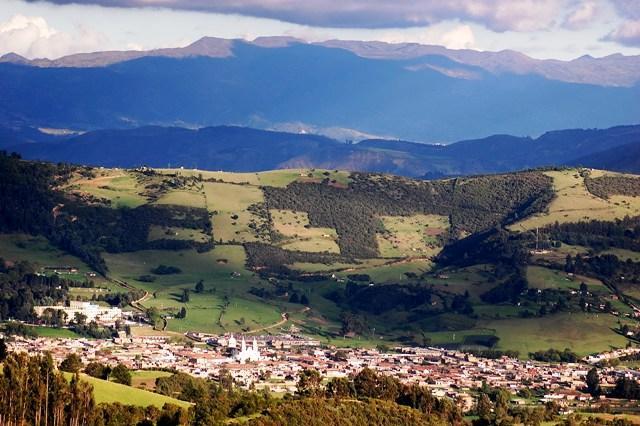Santa Rosa de Viterbo, Boyacá, Colombia
Suggest Place to Visit
1995
Track to location with GPS |
 |
Founded date: May 19, 1690
Name of the founder: the Spanish Alejandro de Villamil y Casadiego
Historical review:
The name of Santa Rosa de Viterbo, unlike the vast majority of Boyacá and Colombian peoples, whose origin is the Chibcha language, comes from ITALIAN references and is composed of Spanish words with religious connotations. Both the name of the municipality, as the name of the main parish, were placed in honor of the Holy Girl, belonging to the Third Order of Saint Francis of Assisi, who was born in the City of Viterbo, Italy, where she also died to the 16 years. Many miracles are attributed to this Saint.
Foundation
The Spanish hosts appeared in the Cundiboyacense highlands at the end of the 1530s. Proof of this is the burning of the temple of El Sol by the ambitious hands of the Hispanic Miguel Sánchez in 1537; the founding of Bogotá by Gonzalo Jiménez de Quezada in 1538 and that of Tunja by Gonzalo Suárez Rendón in 1539. At this same time, Cacique Tundama was vilely assassinated by the Spanish soldiers.
After approximately 150 years, those who inhabited these white confines, today Boyacá places, meet and agree to organize their income for their subsistence and determine that in the place called LLANO DE MIRANDA a new social nucleus different from those already exists. established in the contour: Duitama, Busbanzá and Tobasía, then, incipient human conglomerates.
In this process, the figure of the Procurator of the entire region arises, Mr. Alejandro Villamil Casariego, who is authorized to manage said recognition before the Ecclesiastical and Civil authorities of Santafé de Bogotá. In this way, it is clear from history that Mr. Villamil Casariego limited himself to fulfilling a mission entrusted by the neighborhood, from December 7, 1689, until obtaining, as in effect, the creation of the parish, as a result of a determination of the authorities of Santafé de Bogotá. It is known that on April 28, 1690, the METROPOLITAN COUNCIL erected the parish under the name of SANTA ROSA DE VITERBO. Then, on May 19 of the same year, the President Governor of the New Kingdom, Mr. Maestre de Campo Gil de Cabrera y Dávalos, approved this decision. It is insisted that this occurred after more than 150 years of the Spanish incursion into these territories.
To corroborate the above, let's see some sections of the document dating from December 7 (07), 1689, signed by Master Juan Gutiérrez Irategui:
“The ecclesiastical Promoter of this Archdiocese says that the request of ALEJANDRO VILLAMIL Y CAICEDO (sic), attorney of the neighbors who receive (sic) in the terms (sic) of the towns of Duitama, Tobasía and Busbanzá has been transferred , that the religious of the Order of Preachers and Saint Augustine are Doctrine Cures, in which they claim to be called a secular priest, for which they offer to found a Parish with the title of SANTA ROSA DE VITERBO between the towns of Duitama and Cerinza, to whose effect they refer to have bought land and populated there ... "
Another document of the time mentions the following:
“In the city of Santafé, on May 19, 1690, Mr. Maestre de Campo, Gil de Cabrera y Dávalos, President Governor of the New Kingdom, having seen the Cars made AT THE REQUEST OF THE NEIGHBORS of Duitama, Tobasía and Busbanzá, in reason for founding a parish between the towns of Duitama and Cerinza and that they be given a parish priest, I say that the foundation of the new parish was approved ... which is carried out and thus provided and ordered. Don Francisco Antonio Bayualdes was present ”.
Another document from the year 1689 says:
“In this year many white neighbors dissatisfied with the fact that Duitama was an Indian village of the Royal Crown, and not a white parish, changed the purpose of founding their parish with the denomination of Santa Rosa de Viterbo, committing to support Cura. They also say that it should be located between Duitama and Cerinza, next to the road that goes to Mérida and that they will make Church there. The Lord Dean and the Cabildo Catedral in vacant headquarters on April 28, 1690, GRANT THEIR DECREE ADMITTING THE FOUNDATION AND DISAGGREGATING IT FROM THE DOMINICAN PARISH OF DUITAMA. CAPTAIN GENERAL DON GIL DE CABRERA AND DAVALOS ON BEHALF OF THE ROYAL PATRON, CONFIRMS WITH WHAT DONE; was Pastor of Doctrine Father Fr. Felipe de Tovar, O. P. "
Thus, Santa Rosa de Viterbo, after Tunja, is the most genuine Spanish white foundation that Boyacá has.
In 1690 due to the fact that the Catholic religion had already been accepted and practiced by the natives and settlers, the creation of the parish was determined, a priest was assigned to it and for this reason it received the title of Parish of Santa Rosa de Viterbo. Its First Parish Priest was the Master Don Diego Bravo de León.
In the Regional Historical Archive of Boyacá in the "CABILDO BOOKS" on page 96 there is an Act issued in the city of Tunja on January 1, 1699, by which the General Field Master Don MIGUEL DE BORDA with the assistance of the captains Mr. FERNANDO DE VARGAS MANRIQUE, Alférez Mayor and Mr. JUAN DE LA PEÑA VELEZ, General Depositary of the Alderman, confirmed the election made for the Pediatric Mayor (with limited jurisdiction) of the Parish of Santa Rosa de Viterbo to Mr. .
The title of Villa Republicana conferred on this city in 1810, was a unique case in the history of Colombia. This title conferred the privilege that the mayor of the town and the members of the council were not appointed by the supreme authorities of Santafé de Bogotá, but elected by the same residents of the town. (Santa Rosa de Viterbo was the First Municipality of Colombia that used the popular vote to elect its authorities and have its own administrative autonomy.)
In 2010 Santa Rosa de Viterbo together with thirteen (13) other Colombian Municipalities including Bogotá, will celebrate 200 years of being exalted as Republican Villas.
Under the direction of the Civil, Military and Ecclesiastical Authorities and the collaboration of the living forces of the Municipality, every May 19 the birthday of the parish and the municipality of Santa Rosa De Viterbo is celebrated, in order to remember this memorable date , pay tribute to their distinguished children, evaluate their past, project their future and create a sense of belonging in those who were born, live or work in the Municipality.
Collaboration with the liberating army
There were many ways in which Santa Rosa de Viterbo participated for the cause of independence, always showing him determined patriotism and love of freedom.
On July 20, 1819, the patriot army commanded by Bolívar arrived in Santa Rosa de Viterbo. The patriots of this town attended Bolívar, his staff and his forces very gallantly.
Santa Rosa de Viterbo is located in the Department of Boyacá, on the eastern mountain range, northwest of Tunja and at a distance of 67 kilometers from it. The total area is 107 square kilometers and its topography has two thermal levels: cold 52 square kilometers and páramo 55 square kilometers, with a temperature of 13 degrees centigrade. Santa Rosa de Viterbo, unlike the vast majority of Boyacá towns, whose names are from the aboriginal language, this one comes from an Italic, purely religious ancestor. The average temperature in the municipality of Santa Rosa de Viterbo is between 10 and 15 ° C.
Santa Rosa de Viterbo is located in the Department of Boyacá, on the eastern mountain range, northwest of Tunja and at a distance of 67 kilometers from it. The total area is 107 square kilometers and its topography has two thermal floors: cold 52 square kilometers and páramo 55 square kilometers, with a temperature of 13 degrees centigrade
Limits of the municipality:
East: With the municipalities of Floresta and Cerinza.
West: Municipality of Duitama
North. With the municipalities of Cerinza and Belèn.
South: With the Municipalities of Duitama, Nobsa and Tibasosa.
Total extension: 107 square kilometers Km2
Urban area extension: 4 square kilometers Km2
Rural area extension: 103 square kilometers Km2
Altitude of the municipal seat (meters above sea level): 2753 m.s.n.m.
Average temperature: 13 Degrees Centigrade C
Reference distance: The urban sector is located 65 kilometers from Tunja by the central highway of the North.
Economy
The economic movement of the municipality is based on agricultural and livestock production, especially in potato, corn, carrot, pea, garlic, barley and vegetable crops, fruit trees on a smaller scale; in cattle ranching, the cattle in the production of meat and milk. Micro companies: such as cheese factories, tanneries, cabinetmaking, metalworking, dairy, metalworking, carpentry, some candy companies and others.
LAND COMMUNICATION ROADS:
The north central highway, which connects the municipality of Duitama to the palm tree and is a national road, the road that connects Santa Rosa with Floresta and corrales, a departmental road; Tertiary roads that connect the different paths with the urban area.
Traditionally, the town's fairs and festivals are held in mid-September, developing equine and livestock expositions with the participation of the neighboring municipalities and perhaps more importantly the reign of the Boyacense countryside founded by Messrs. Rubén Useche and Carlos Martínez.
Comments
We don´t have yet any comments about:
Santa Rosa de Viterbo
Santa Rosa de Viterbo
Be the first to leave a comment as it is very important to inform other people
Outros locais a visitar
Within a radius of 20 km from:Santa Rosa de Viterbo
Pueblito Boyacense |
| 6,5 Km |
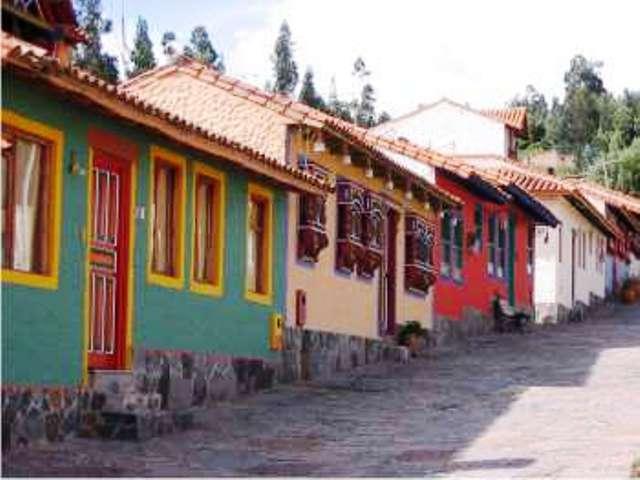 |
Agricultural Museum |
| 6,6 Km |
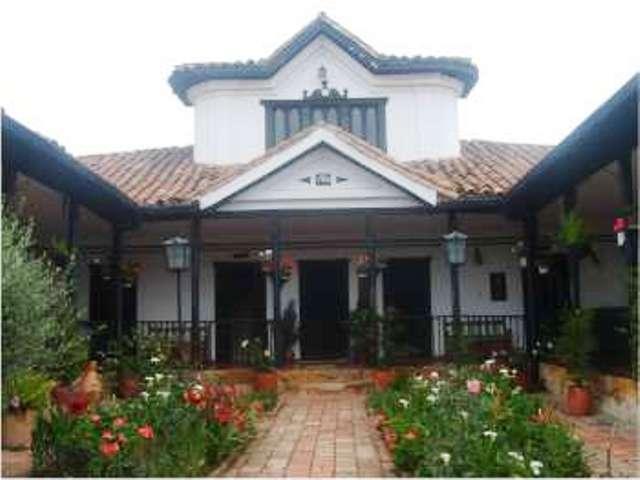 |
Duitama Cathedral |
| 7,5 Km |
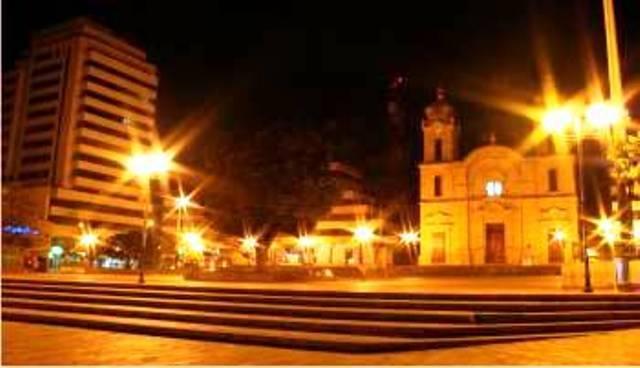 |
Park of the Liberators |
| 7,8 Km |
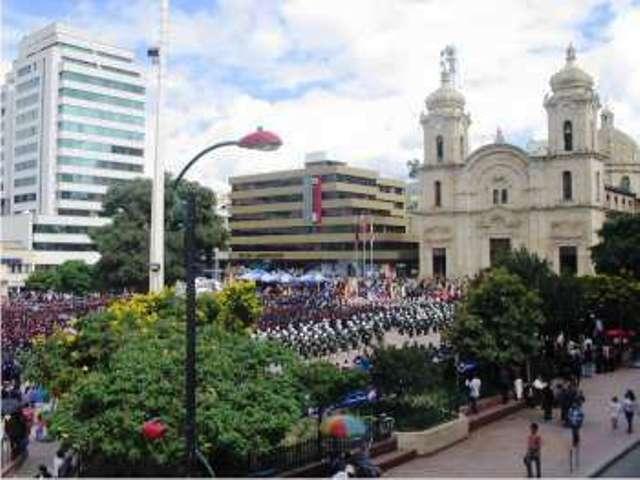 |
Culture |
| 7,9 Km |
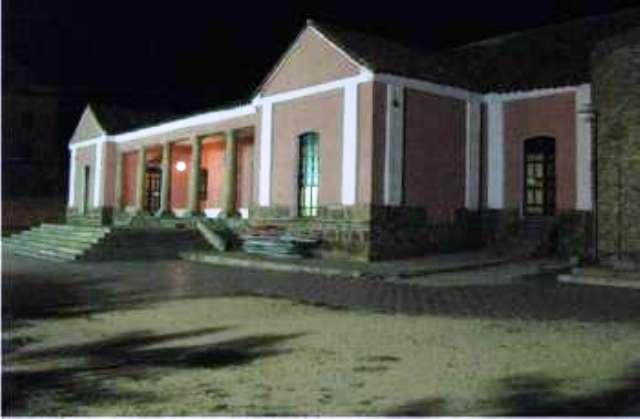 |
Our Lady of Carmen |
| 8,1 Km |
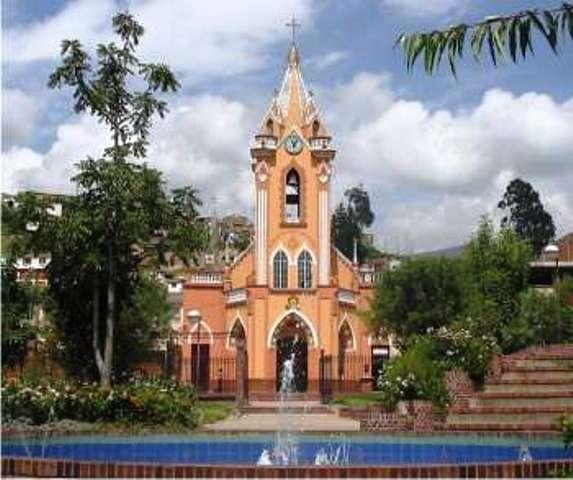 |
Duitama |
| 8,2 Km |
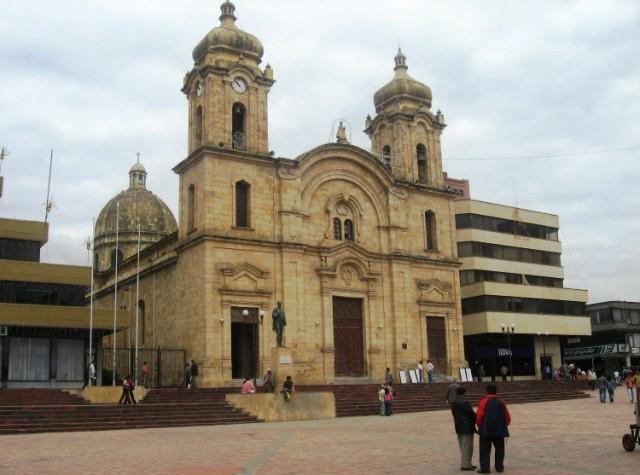 |
El Monumento a los Lanceros del Pantano de Vargas |
| 17,7 Km |
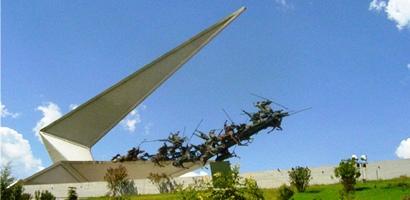 |
Paipa |
| 17,9 Km |
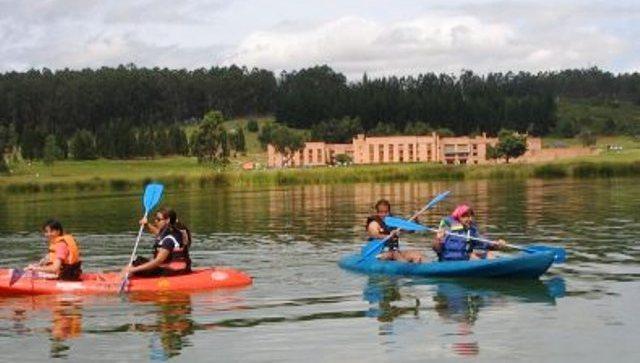 |
Hotel reservation near Santa Rosa de Viterbo within a radius of 20 km
Why to book with ROTAS TURISTICAS
The best prices
Our partnerships with the world´s largest operators offer research on the best market prices.
More options
At Rotas Turisticos you can book the hotel, buy the air ticket, book the transfer from the airport to the hotel and vice versa, book the local excursions, rent the car, take travel insurance and consult the places to visit and where to go.
Holiday Tips & Destinations
Hundreds of holiday destinations with all the options that allow you to easily choose the destination that best suits your dream vacation.
ROTAS TURISTICAS
Links


